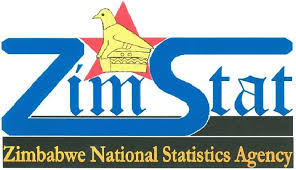Statistical information sourced by bodies such as ZimStat among others, is very critical as it helps Government to come up with homegrown solutions to some of the problems bedevilling our country. When such information is presented to the public, it is our hope that it will have been analysed and synthesised such that it sends correct signals to ordinary Zimbabweans.
The news this week that Zimbabwe has an unemployment rate of 11 percent, contrary to claims by some economists that it was more than 70 percent, raised many questions.
Such low levels of unemployment as claimed by Zim Stat should see many Zimbabweans enjoying high quality life, where industries will also be operating at above 70 percent capacity. Everyone in that environment seeking a job, or wishing to switch to another one must be able to do so.
In general terms, unemployment occurs when a qualified person searching for employment in the field that they have studied is unable to find work. Some economists argue unemployment is often used as a measure of the health of an economy.
It is against this background that we challenge Zim Stat to explain for the benefit of Zimbabweans what the 11 percent unemployment rate means at a time when millions of energetic and skilled Zimbabweans have since hanged their diplomas and degrees and started pursuing other things.
Anecdotal information suggests more than 70 percent of university and college graduates who are churned out by tertiary institutions every year are not employed in the field of their study.
We do not want to believe that Zim Stat is confusing being gainfully employed and to be economically active. Although we do not buy the argument by some pro-opposition MDC-T non-governmental organisations that unemployment is above 80 percent, it is also hard to believe Zim Stat's claim that unemployment is below 11 percent in Zimbabwe.
If Zim Stat can believe these results then we are afraid Government may be ill-informed as to the number of qualified personnel who are redundant.
The agency's director-general Mr Dzinotizei Mutasa was reported by this paper yesterday telling participants at a one-day Zim Stat information dissemination workshop that most people in the country were economically active and only 11 percent were unemployed according to the 2012 findings.
"We have always had this argument about what is the percentage of people that are employed or unemployed in Zimbabwe. Textbook economists will say 85 percent but that is not true. If we had a population like that most people in Zimbabwe would have died, it is not possible," he argued.
It's true that millions of Zimbabweans are economically active and are contributing meaningfully to economic development. The economic activities are countless and they include; selling small items such as airtime, tomatoes, doing carpentry to selling bigger items such as cars and houses.
All these people are economically active, but they do not pay taxes and contribute to national Gross Domestic Product. Although it is true that some of these people have huge daily takings from their small entities, the correct position according to economists is they are not skilled-employees since their activities are not going concerns.
However, to be gainfully employed means having a contract of employment with an institution and this entails one's entitlement to a salary monthly, pay some statutory contributions such as Pay As You Earn as well as paying for health insurance, qualify to get salary-based loans and other benefits. Besides, people who are gainfully employed are also economically active as well as they also engage in so many businesses to supplement their incomes.
We therefore argue that the 11 percent unemployment claim by Zim Stat needs to be revisited since it has the potential to give Government the impression that all is well and the people are happy yet the situation on the ground points to the other direction.
- herald
 OK Zimbabwe posts US$17,8 million loss
OK Zimbabwe posts US$17,8 million loss  Hichilema meets Chivayo
Hichilema meets Chivayo  Millions celebrate Diwali festival in India
Millions celebrate Diwali festival in India  Econet Zimbabwe to delist from ZSE
Econet Zimbabwe to delist from ZSE  Gold edges up as traders await guidance
Gold edges up as traders await guidance  Mnangagwa fires Chitando, appoints Polite Kambamura
Mnangagwa fires Chitando, appoints Polite Kambamura  Young Investment Professional (YIP) Graduate Programme 2019
Young Investment Professional (YIP) Graduate Programme 2019 











 Young Investment Professional (YIP) Graduate Programme 2019
Young Investment Professional (YIP) Graduate Programme 2019
Editor's Pick